Results
-
£60.99
Marching Blues - Hayato Hirose
Marching Blues was written in the blues and swing-jazz style of the great big bands. It is an ideal show march that can be used for encores, popular performances, family concerts and much more. As an added entertaining feature why not get your Eb bass player to stand for his/her 28-bar solo! From small ensembles to large bands, Marching Blues will bring great joy to all generations of performers and audiences on many occasions.
Estimated dispatch 5-14 working days
-
 £54.99
£54.99Images for Brass - Stephen Bulla
Stephen Bullas highly descriptive work was written to commemorate the 50th anniversary of the Battle of Iwo Jima, which took place between the 19th February and 26th March 1945.Casualties on both the American and Japanese sides were horrendously high before the famous image of the raising of the flag on top of Mount Suribachi signalled the end of one of the most significant and terrifying Pacific conflicts of the SecondWorld War.The work received its first performance by the brass choir of the U.S. Marine Band at the National Cathedral in Washington D.C. and is divided into four programmatic sections.The first portrays the sense of anticipation before conflict (Prologue), before the arduous journey to the scene of the battle (Approach by Sea) is followed by introspection and prayer featuring the hymn tune Melita (Chorale Prayer), andfinally, the hostile confrontation itself (Engagement).There are frequent references to the Marines Hymn and the US National Anthem, particularly in the closing bars, depicting the ultimate raising of the American flag.
Estimated dispatch 5-14 working days
-
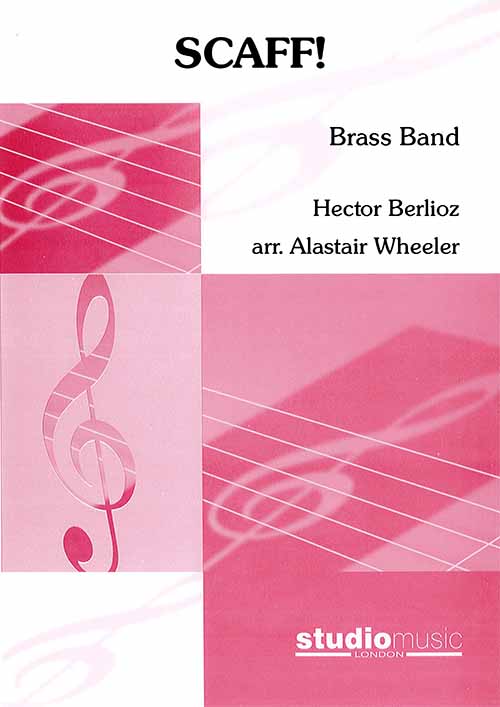 £42.95
£42.95Scaff! (Brass Band - Score and Parts) - Berlioz, Hector - Wheeler, Alastair
While in the Oxford University Jazz Orchestra, trumpeter Alex Gallafent confided that he had always wished there was a big band arrangement of 'March to the Scaffold' opening with Gene Kruppa toms. Fast forward several years to the Kew Wind Orchestra, where Andy Black is a chartered surveyor who "loves a nice piece of scaff...". Here is a great arrangement done for brass band.The protagonist in the story of this 4th movement is having a nightmare that he has killed his loved one, that he is condemned and he is being led to execution where he will witness his own guillotining.
Estimated dispatch 7-14 working days
-
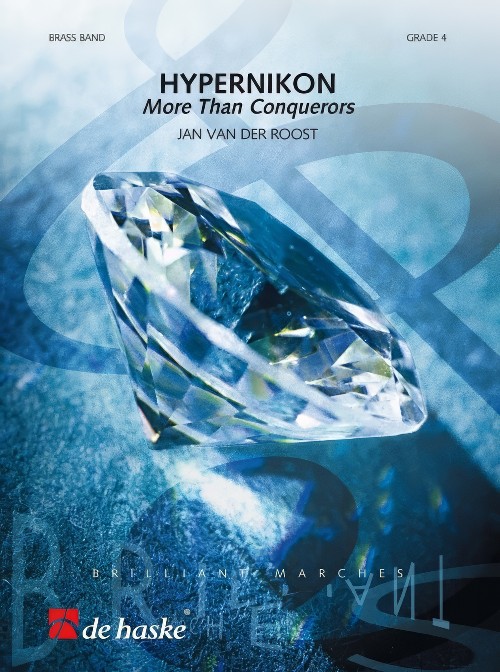 £54.99
£54.99Hypernikon (Brass Band - Score and Parts) - Van der Roost, Jan
The Greek word hypernikon roughly translates as More Than Conquerors, the motto of Gordon College in Wenham, Massachusetts, the commissioner of this piece. The work is inspired by David Rox's very own name, the first two letters of his name, D and A, sets the first theme is in D major, with these notes being the tonic and dominant of the scale. After the stately intrada, the tempo accelerates and the festive feel of the march emerges. The trio melody serves as a beautiful contrast before finally ending with the opening theme in a grand tutti.Duration: 3.45
Estimated dispatch 7-14 working days
-
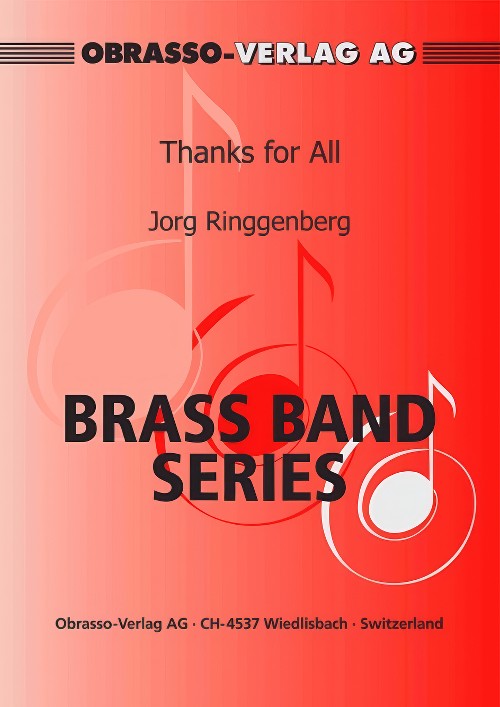 £42.70
£42.70Thanks for All (Brass Band - Score and Parts) - Ringgenberg, Jorg
This set is March Card sized
Estimated dispatch 7-14 working days
-
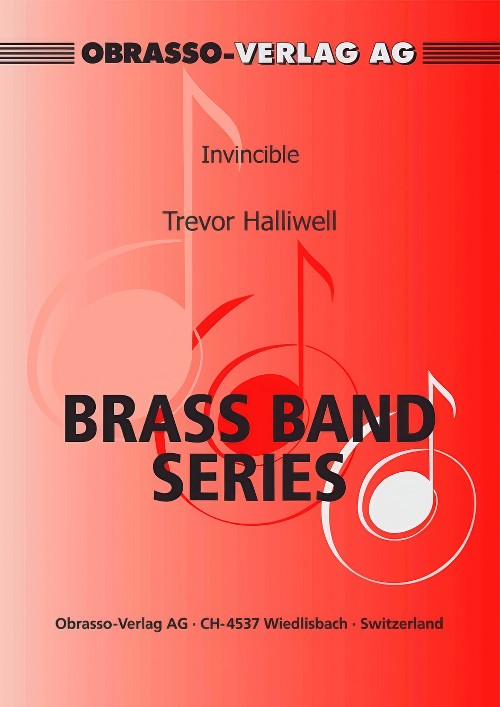 £56.00
£56.00Invincible (Brass Band - Score and Parts) - Halliwell, Trevor
This march is dedicated to the Besses O'th Barn in September 2018 for their Bicentennial Celebrations
Estimated dispatch 7-14 working days
-
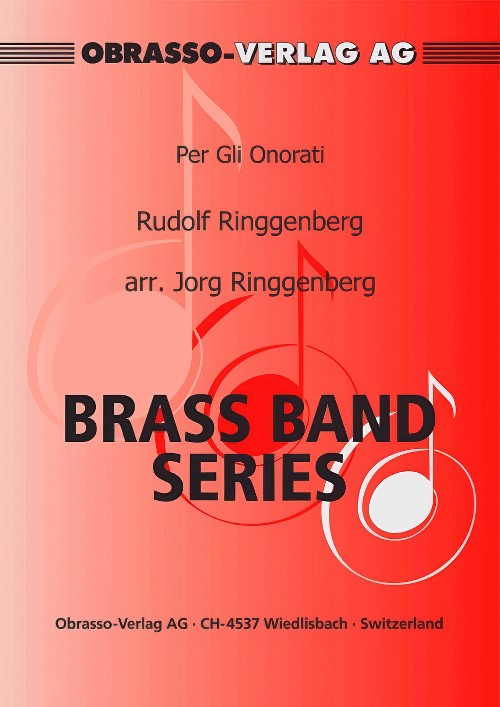 £42.70
£42.70Per Gli Onorati (Brass Band - Score and Parts) - Ringgenberg, Rudolf - Ringgenberg, Jorg
This set is March Card Sized
Estimated dispatch 7-14 working days
-
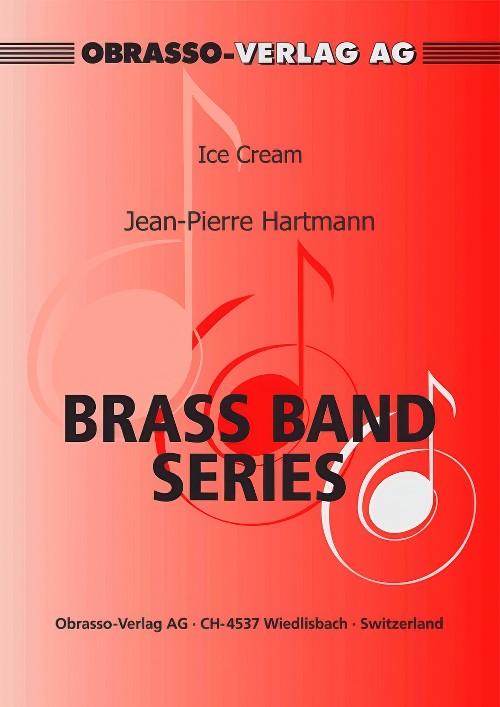 £56.00
£56.00Ice Cream (Brass Band - Score and Parts) - Hartmann, Jean-Pierre
Fantasy March
Estimated dispatch 7-14 working days
-
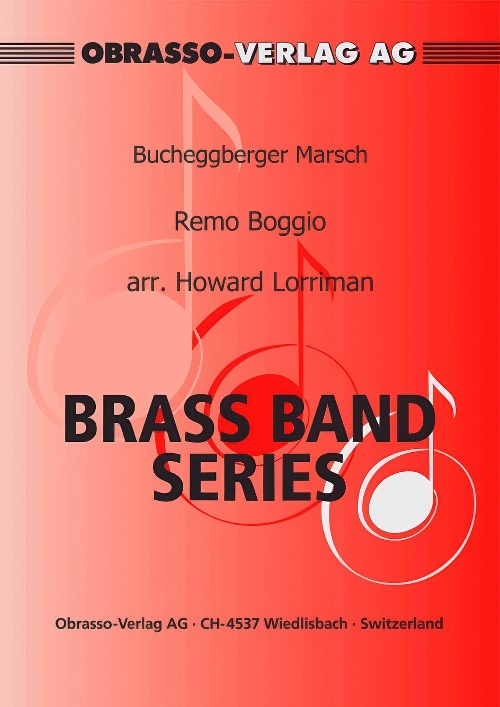 £42.70
£42.70Bucheggberger Marsch (Brass Band - Score and Parts) - Boggio, Remo - Lorriman, Howard
This set is March Card Sized
Estimated dispatch 7-14 working days
-
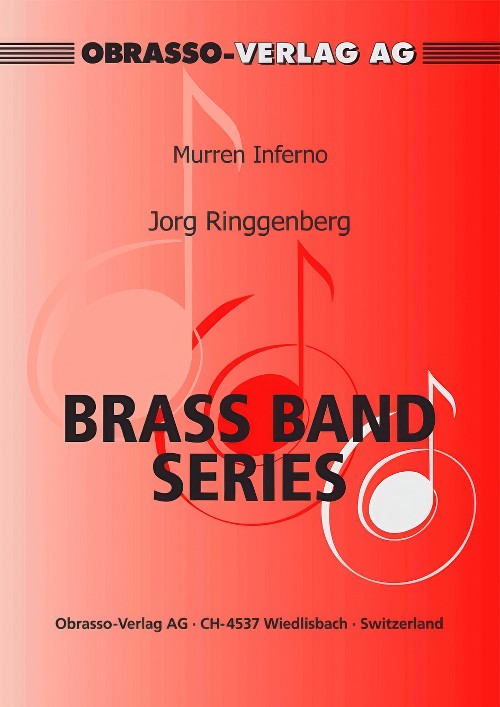 £42.70
£42.70Murren Inferno (Brass Band - Score and Parts) - Ringgenberg, Jorg
This set is March Card Sized
Estimated dispatch 7-14 working days
